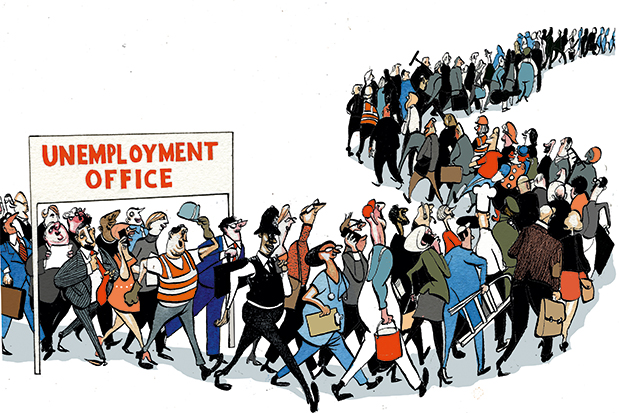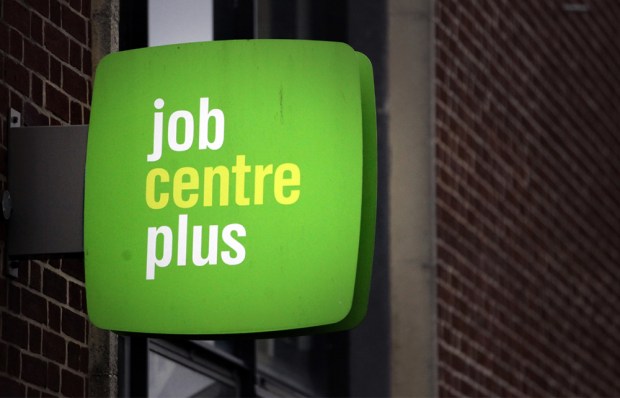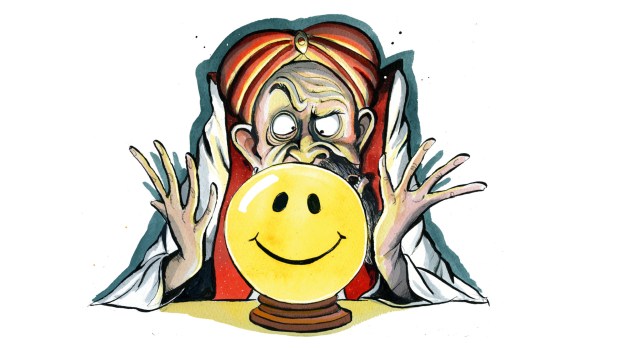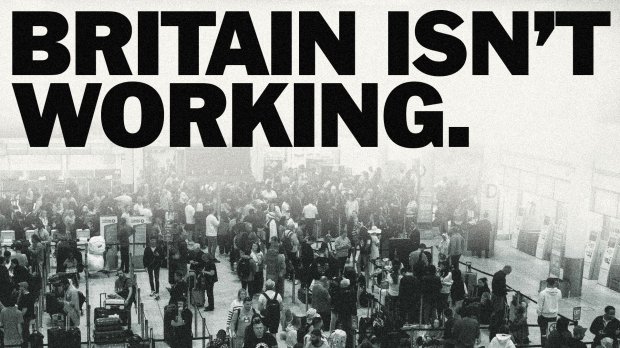At any other time, news that Honda intends to close its Swindon plant in two years’ time with the loss of 3,500 jobs would have been seen for what it is: a tragedy for those affected, their families and businesses it supports. But the story was used by both sides in the Brexit wars to prove their point. Certain Remainers saw it as proof of what leaving the EU will bring, while some Leavers were almost callous in the way they shrugged off the closure. When news like this is being exaggerated for effect, it’s hard to form a clear view of what’s going on. But through the fog, a pattern is discernible.
The car-making industry is in great difficulties worldwide, as Ross Clark argued in our cover piece a fortnight ago. Honda is also to stop making the Civic at its plant in Turkey, and it has blamed the closures on changing global demand, saying it needs to focus on electric cars. Its chief executive said that Brexit ‘was not taken into account’ in the Swindon decision; if so, this makes things worse. What is true for Honda will be true for other carmakers, so we can expect more such closures. Each one will be a hammer blow for their local community.
But it would be wrong to see the car industry as a bellwether for the UK economy, which keeps creating jobs at an astonishing rate. It emerged this week that 444,000 jobs were added last year alone: around 1,200 a day. Economists are still trying to explain this success, which certainly contrasts with HM Treasury’s estimate that the vote for Brexit would in itself cost 500,000 jobs. In fact, the problem emerging now is not a lack of jobs, but a lack of workers. This usually encourages employers to spend more on salaries, equipment and training.
The Brexit negotiation has been a disgraceful shambles. But the political panic does not seem to be infecting the country more widely, nor is it spooking employers. The unemployment rate, which stands at 4 per cent, is now at the lowest it has been since the start of 1975. For women, the unemployment rate is the lowest since such statistics started being collected. While countless hours have been spent debating the gender pay gap, especially among highly paid BBC presenters, less has been made of the transformation in employment opportunities for women right across the pay scale.
It is also becoming ever harder to claim, as Jeremy Corbyn and many others do, that low unemployment has been bought at the cost of greater insecurity and lower wages — most jobs created are full-time. As for ‘zero hours’ Britain, just 2.6 per cent were employed either wholly or mainly on a zero-hours contract, and research shows that most choose such contracts so as not to be tied down. Insecure and low-waged work is still a problem, but it would be wrong to think this characterises the UK — especially considering that we will soon have one of the highest minimum wages in the world.
In normal times, the government would be boasting of falling unemployment, and winning plaudits for achieving what many said was impossible. When he was Tory chancellor, Ken Clarke suggested that unemployment was becoming a ‘structural problem’. In the intervening years, we have heard predictions of a future where technology systematically gobbles up entire areas of employment, leaving millions in enforced idleness. Instead, the opposite has happened: jobs are being created as never before. If anything, Britain has too many people doing the kind of low-wage work that machines ought to be doing.
Workers are now in a better bargaining position: this is why wages are rising. Blue-collar workers, who have had a miserable time since the crash, are in higher demand and wielding greater power. Forces of supply and demand are achieving what Corbynites believe can only be achieved through organised labour and government regulation. Workers are demanding — and receiving — wage rises. They are also in a position to demand better working conditions.
Carmakers, by and large, have been pretty good at investing in people. And in machines: Nissan’s plant in Sunderland is so efficient that it was recently producing half a million cars a year. When such factories close, high-skilled and well-paid jobs go. Some Brexiteers point out that the EU’s free trade deal with Japan will have weakened the case for Swindon: why should Honda make cars in Europe if it no longer faces tariffs on cars sent from Japan? Quite so, but Brexiteers generally propose low tariffs and as much free trade as possible. They ought to prepare for more closures, and for the difficult argument that such pain is justified by lower prices.
All manner of difficult decisions lie ahead, as the Brexit drama reaches its denouement. But with more Brits in work than any time before, the economy is in a reasonable position to cope. A healthy economy — and society — is one where neither employers nor workers get the upper hand for long, where both exist in a state of balance. At present, Britain finds itself in that position. A Tory party which hopes to see off the Corbynite challenge ought to find a way of saying so.
Got something to add? Join the discussion and comment below.
Get 10 issues for just $10
Subscribe to The Spectator Australia today for the next 10 magazine issues, plus full online access, for just $10.
You might disagree with half of it, but you’ll enjoy reading all of it. Try your first month for free, then just $2 a week for the remainder of your first year.














Comments
Don't miss out
Join the conversation with other Spectator Australia readers. Subscribe to leave a comment.
SUBSCRIBEAlready a subscriber? Log in